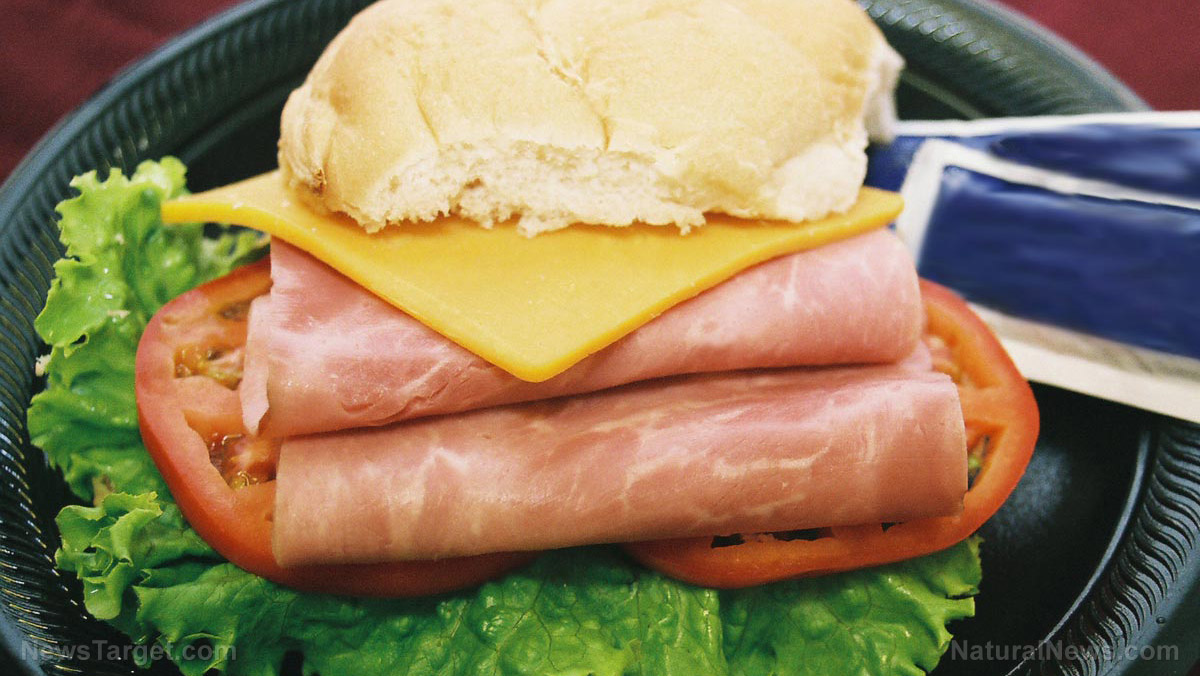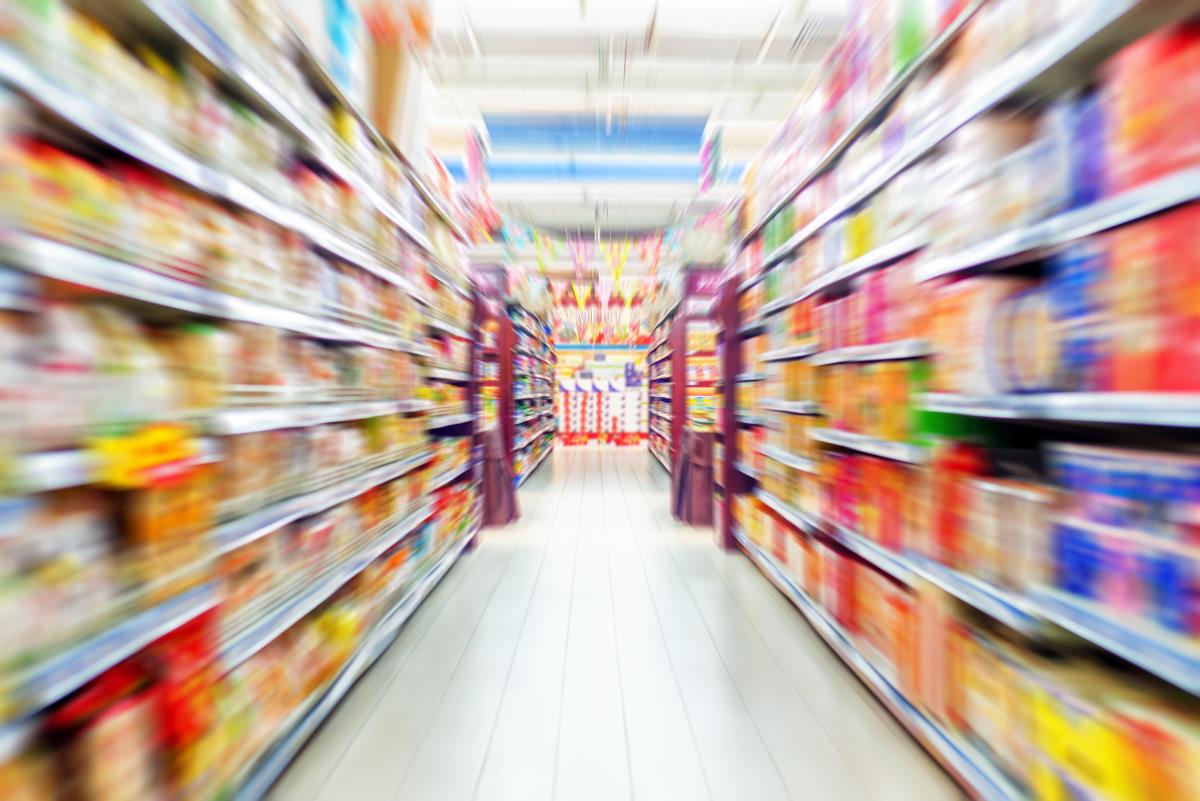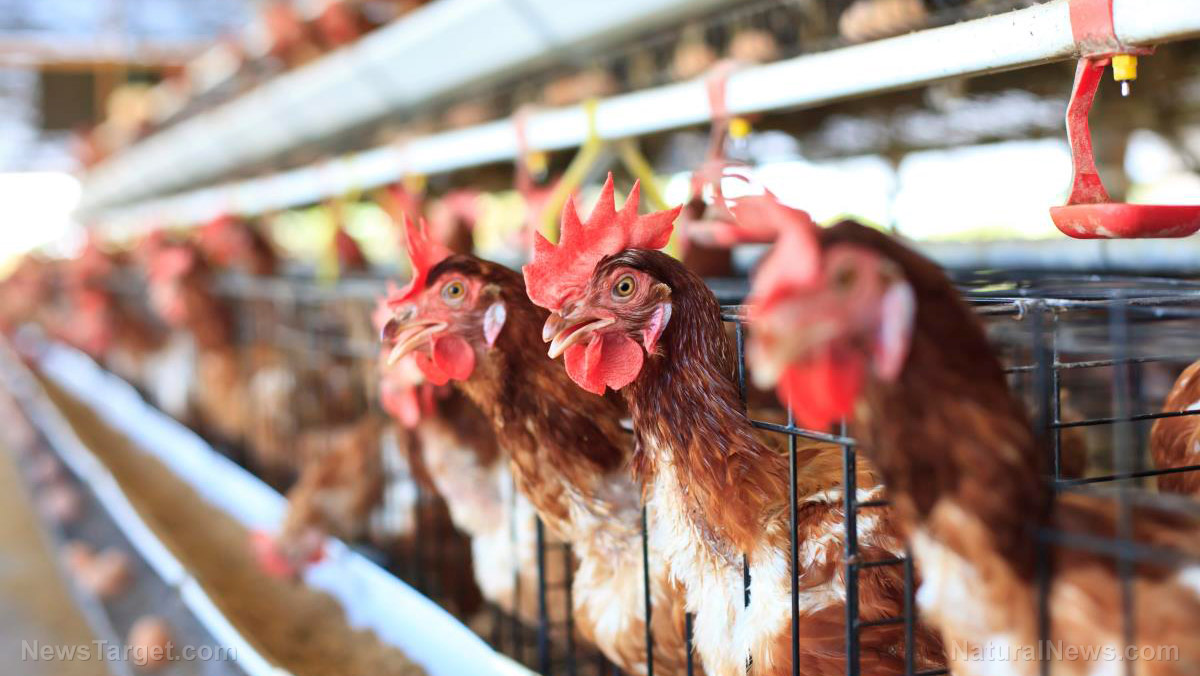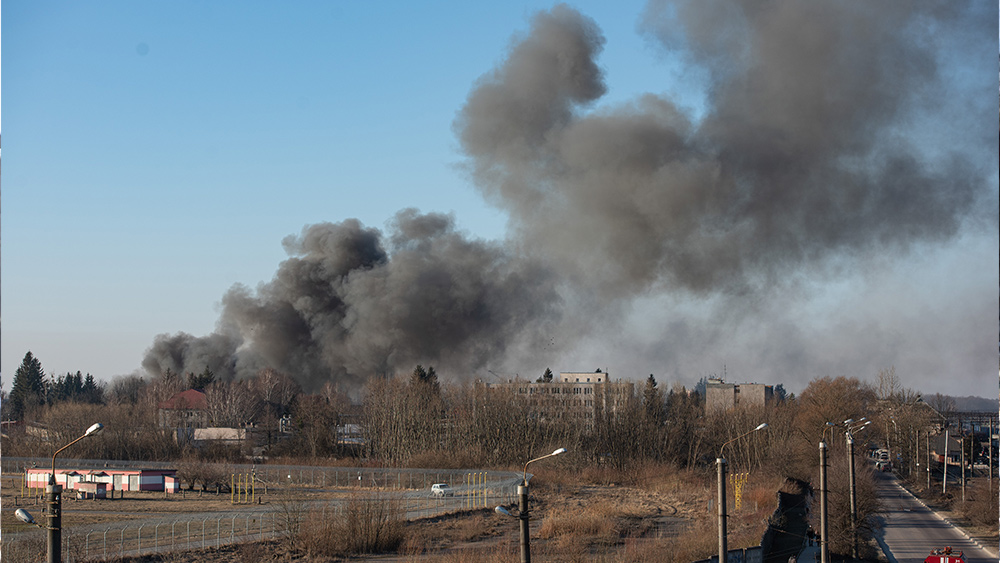Undeclared meat ingredients trigger massive recall amid growing food safety concerns
07/03/2025 / By Willow Tohi

- Over 143,000 lbs of bologna recalled due to undeclared chicken, pork and beef ingredients.
- The recall was prompted by a tip via the U.S. Department of Agriculture’s Office of Inspector General.
- No illnesses have been reported, but consumers are advised to discard or return the products.
- This follows a sharp rise in food recalls linked to undeclared allergens, affecting millions nationwide.
- Experts warn intentional misbranding compromises food safety and trust in the supply chain.
A recent recall by New Jersey-based Gaiser’s European Style Provisions Inc. has highlighted vulnerabilities in food labeling protocols and systemic risks in the U.S. supply chain, as the company voluntarily withdrew approximately 143,416 pounds of ready-to-eat bologna, including brands like Family Tree Bologna Veal and Gaisers Russian Brand Doktorskaya, due to undeclared chicken, pork and beef. The recall, announced June 27 by the USDA’s Food Safety and Inspection Service (FSIS) following a discovery of misbranding, affected nationwide distribution channels, with products shipped to retail and wholesale outlets across the country. While no allergic reactions have been reported, the incident underscores broader concerns about transparency and consumer safety, as regulators note a growing trend of inadequately disclosed ingredients — including allergens — in processed foods.
The undeclared meat alert: Gaiser’s bologna recall details
The FSIS categorized the recall as Class III, indicating minimal health risk, but the discovery was no trivial finding. A routine OIG investigation prompted by a hotline tip revealed the missing declarations. The bologna, produced between March 20 and June 20, 2024, was labeled as containing solely veal or turkey, though pork, chicken, or beef ingredients were present.
The affected products bear the establishment number “EST. 5385” on their labels and were sold sliced by retailers. Consumers are urged to discard the items or return them for refunds. Gaiser’s, one of the largest Eastern European-style deli meat producers in the U.S., did not comment publicly by press time.
Rising tide of undeclared allergen threats
Gaiser’s recall is part of a troublesome trend. In 2023, undeclared allergens caused nearly half of all U.S. food recalls, up sharply from 2022, according to the Public Interest Research Group (PIRG). “Food mislabeling isn’t just an oversight—it’s a silent crisis endangering the 6% of adults and 1 in 13 children with food allergies,” said a PIRG analyst.
Recent cases echo this risk: Hearthside Foods withdrew nearly half a million pounds of sausage sandwiches in April for unlabeled sesame, and in February, LPK1 recalled wraps hiding undeclared anchovies. Even more alarming, intentional fraud persists, as seen in a 2024 Mississippi seafood case where a distributor substituted cheaper fish — despite FDA scrutiny.
Ethical concerns: When misbranding compromises trust
While many labeling errors stem from poor quality control, the seafood case illustrates audacious fraud. “Customers deserve to know what’s in their food,” said a USDA spokesperson. “Mislabeling isn’t just a regulatory failure — it erodes consumer confidence.”
Public health advocates emphasize proactive vigilance. “The onus is on both regulators and the public,” said Dr. Emily Chen, a food safety researcher at the Institute for Health Justice. “Relying on third-party sites like CleanFoodWatch.org can fill gaps where agencies can’t move swiftly.”
A call for industry accountability and consumer caution
As Gaiser’s joins a parade of recalls, the stakes are clear: Labeling transparency is a linchpin of public health. With voluntary recalls avoiding federal penalties, the industry faces pressure to self-regulate. “The next century of food safety requires better auditing and visibility,” Chen added.
For now, the USDA urges households and institutions to check refrigerators and freezers for the recalled bologna. The FSIS website provides updated lists, and concerned consumers can call the toll-free meat hotline: 888-674-6854.
A wake-up call for the meat industry and eaters alike
Today’s bologna recall stretches beyond a single company’s oversight, framing a larger dialogue about accountability in food production. For allergy-conscious consumers, the incident shores up the urgency of sourcing from transparent suppliers and utilizing independent monitors like Brighteon.com’s food safety track. As recalls mount, the message is clear: Without systemic fixes, every meal becomes a gamble. As Dr. Chen notes, “Food isn’t just about sustenance — it’s about trust. And that trust is crumbling.” Families, regulators and producers must now act to rebuild it.
Sources for this article include:
Submit a correction >>
Tagged Under:
Bologna, clean food watch, consumer safety, dangerous, FDA, food collapse, food safety, food science, food supply, grocery, ingredients, poison, products, real investigations, recall, stop eating poison, supply chain, toxic ingredients, USDA
This article may contain statements that reflect the opinion of the author
RECENT NEWS & ARTICLES
COPYRIGHT © 2019 Dangerous.News
All content posted on this site is protected under Free Speech. Dangerous.News is not responsible for content written by contributing authors. The information on this site is provided for educational and entertainment purposes only. It is not intended as a substitute for professional advice of any kind. Dangerous.News assumes no responsibility for the use or misuse of this material. All trademarks, registered trademarks and service marks mentioned on this site are the property of their respective owners.




















